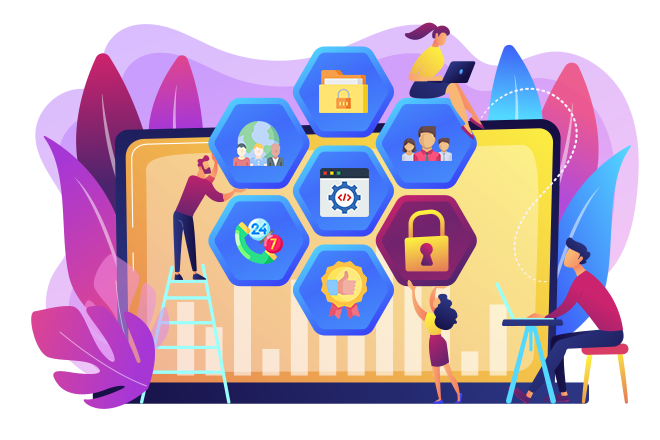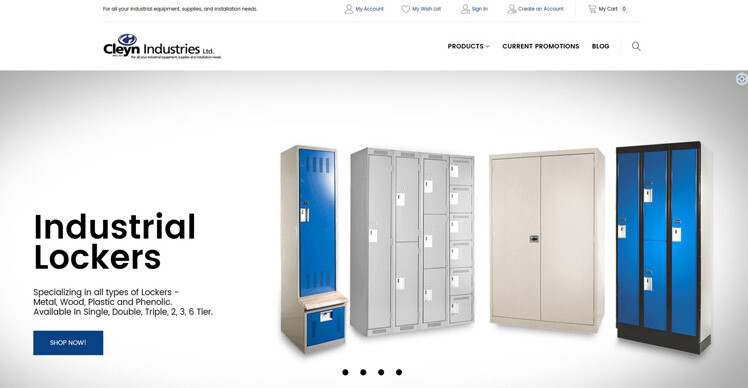What is WooCommerce Plugin Support?
WooCommerce plugin support refers to the assistance and troubleshooting provided by plugin developers, third-party providers, or the broader WooCommerce community to help users resolve issues, optimize performance, or ensure compatibility with the WooCommerce platform. WooCommerce plugins are extensions designed to enhance the functionality of a WooCommerce store, whether for payment gateways, SEO optimization, shipping methods, or product customization. While most plugins are easy to install and configure, issues can arise that require support.
The right WooCommerce plugin support is essential for ensuring smooth operations, preventing downtime, and avoiding frustrations when technical issues occur. Whether you need help installing a new plugin or troubleshooting compatibility problems, knowing how to get proper support is key to running a successful online store.
Why WooCommerce Plugin Support Is Crucial for Your Store
WooCommerce plugins are responsible for adding crucial features and functionalities to your online store. Without them, you may lack essential tools like payment gateways, shipping calculators, marketing tools, and more. Here’s why WooCommerce plugin support is indispensable for your e-commerce business:
1. Preventing Downtime
Technical issues related to plugins, such as compatibility conflicts or broken functionalities, can lead to website downtime. This can result in lost sales, damaged customer trust, and a poor user experience. WooCommerce plugin support helps to resolve these issues swiftly, keeping your store online and operational.
2. Maintaining Website Performance
Installing too many plugins or using poorly optimized ones can slow down your website. Plugin-related issues can affect site speed, which in turn impacts SEO and customer satisfaction. WooCommerce plugin support helps you choose the right plugins and optimize their use, ensuring your website’s performance remains optimal.
3. Ensuring Compatibility
Plugins often need to work together with other extensions and updates from both WooCommerce and WordPress. Compatibility issues are common, and without WooCommerce plugin support, you might struggle to integrate multiple plugins. Timely support ensures your plugins work seamlessly with your WooCommerce store.
4. Security Updates
E-commerce stores deal with sensitive customer information, making security paramount. Regular updates and patches to plugins ensure that they remain secure. Having reliable WooCommerce plugin support ensures that you’re kept informed about security risks and that your plugins are always up to date.
5. Customizations and Optimization
Many stores need additional customizations to their plugins or integrations with other tools. WooCommerce plugin support can help you modify plugins, optimize performance, or add new features to meet specific business needs.
Common WooCommerce Plugin Issues and How Support Helps
Even the most well-maintained and well-optimized WooCommerce store can experience issues with plugins. Here’s a look at some common issues that might require WooCommerce plugin support:
1. Plugin Compatibility Issues
One of the most common problems faced by WooCommerce store owners is plugin compatibility. WooCommerce plugins may not always work well together, especially when they are developed by different companies or have not been updated in a while. WooCommerce plugin support can help resolve these conflicts, either by troubleshooting the issue directly or advising on which plugins to use for optimal performance.
2. Plugin Installation and Configuration Problems
Some WooCommerce plugins are simple to install and configure, while others might require more technical knowledge, particularly if you’re integrating a new payment gateway or customizing a product page. If you’re having trouble getting a plugin up and running, WooCommerce plugin support will guide you through installation and setup.
3. Performance Issues
Performance problems such as slow page load times can often be traced back to plugins. Too many active plugins, poorly coded plugins, or incompatible versions can reduce your site’s speed. WooCommerce plugin support can assist with identifying the cause and recommend strategies or alternatives to keep your site fast and responsive.
4. Plugin Update Failures
If a plugin fails to update, it could cause issues with compatibility, security, and performance. WooCommerce plugin support can assist in troubleshooting failed updates and ensuring that everything runs smoothly after an update is installed.
5. Payment Gateway Issues
Payment gateways are integral to WooCommerce, and any disruption in the functionality of a payment gateway plugin can mean lost revenue and customer dissatisfaction. If your payment gateway plugin is not working, WooCommerce plugin support can help resolve these issues by checking for plugin conflicts or helping with configuration problems.
How to Get Effective WooCommerce Plugin Support
To get the most out of WooCommerce plugin support, there are certain steps you should follow to ensure that the process is efficient and effective:
1. Use Plugin Documentation
Before reaching out for support, always consult the plugin’s official documentation. Most well-maintained WooCommerce plugins come with extensive documentation that can help you troubleshoot common issues or guide you through configuration.
2. Visit the WooCommerce Support Forums
WooCommerce has an active community, and many plugin developers and users participate in support forums. The forums are a great place to ask questions, find solutions to common problems, and get expert advice. You can find official WooCommerce support forums, as well as forums on individual plugin developer sites.
3. Contact the Plugin Developer
Many premium WooCommerce plugins offer direct support from their developers. If you’re experiencing an issue with a paid plugin, you can usually contact the plugin’s developer or support team for help. Always provide as much detail as possible when reaching out to get quicker and more accurate support.
4. Check for Known Issues
Before you request support, check whether your issue is already known or if there’s a current bug affecting the plugin. Developers usually update their changelogs or provide notifications about ongoing issues. This can save you time by allowing you to solve problems on your own.
5. Test for Conflicts
If you have multiple plugins installed, there’s a chance that one plugin is conflicting with another. Deactivate your plugins one at a time to identify if a particular plugin is causing an issue. Once you’ve narrowed it down, you can contact WooCommerce plugin support for assistance.
6. Follow Up with Support
If your issue isn’t resolved right away, don’t hesitate to follow up with the support team. Ensure you provide all the necessary details such as error logs, screenshots, and a description of the issue to expedite the process.
Best Practices for Managing WooCommerce Plugins
To minimize the need for WooCommerce plugin support and ensure your store runs smoothly, it’s essential to follow best practices in managing your plugins. Here are some tips for maintaining a healthy WooCommerce store:
1. Use High-Quality Plugins
When selecting plugins, choose those that are well-reviewed, frequently updated, and supported by active development teams. Premium plugins often come with better support options and are less likely to cause issues.
2. Limit Plugin Usage
While plugins add great functionality, using too many can slow down your site and increase the chances of compatibility problems. Carefully evaluate each plugin’s necessity before installation.
3. Regularly Update Plugins
Ensure your plugins are up-to-date to avoid compatibility and security issues. WooCommerce plugin support often includes updates and patches that address bugs and security vulnerabilities.
4. Test Plugins on a Staging Site
Before applying updates or installing new plugins, test them on a staging environment. This will help you catch issues before they affect your live store and minimize the need for emergency WooCommerce plugin support.
5. Backup Your Store
Always have a backup of your website, especially before installing or updating plugins. This way, you can easily revert to a previous version of your site if a plugin causes issues.
Popular WooCommerce Plugins That Often Require Support
Here are some of the most commonly used WooCommerce plugins that may require support at some point:
1. WooCommerce Subscriptions
This plugin allows you to create and manage subscription-based products. You may need WooCommerce plugin support to help with payment gateway integration, subscription management, or handling recurring billing issues.
2. WooCommerce Bookings
For businesses that offer booking services, this plugin is essential. If you experience issues with availability, calendar integration, or notifications, WooCommerce plugin support is there to help.
3. WooCommerce Memberships
For stores offering memberships, this plugin adds the functionality needed to restrict access to content and provide member-only benefits. Support may be required when troubleshooting membership-related issues.
4. WooCommerce Product Add-Ons
This plugin helps you add custom options to products. It can be useful for stores that sell customizable items, but issues with product fields, custom pricing, and compatibility can arise, requiring support.
5. WooCommerce Stripe Payment Gateway
Stripe is one of the most popular payment gateways, and while the plugin itself is robust, you may run into issues with payment processing, currency handling, or API connections that need WooCommerce plugin support.
Conclusion
WooCommerce plugins are powerful tools that allow you to enhance the functionality of your online store, but sometimes, technical issues or configuration problems can arise. Having access to WooCommerce plugin support ensures that you can resolve these issues quickly and efficiently, keeping your store running smoothly. By following best practices for managing plugins and knowing how to get the help you need, you can optimize your WooCommerce store and provide an excellent shopping experience for your customers.
Remember to choose high-quality plugins, maintain regular updates, and reach out to WooCommerce plugin support when necessary. Doing so will enable you to leverage the full potential of WooCommerce plugins while minimizing potential disruptions to your store.



